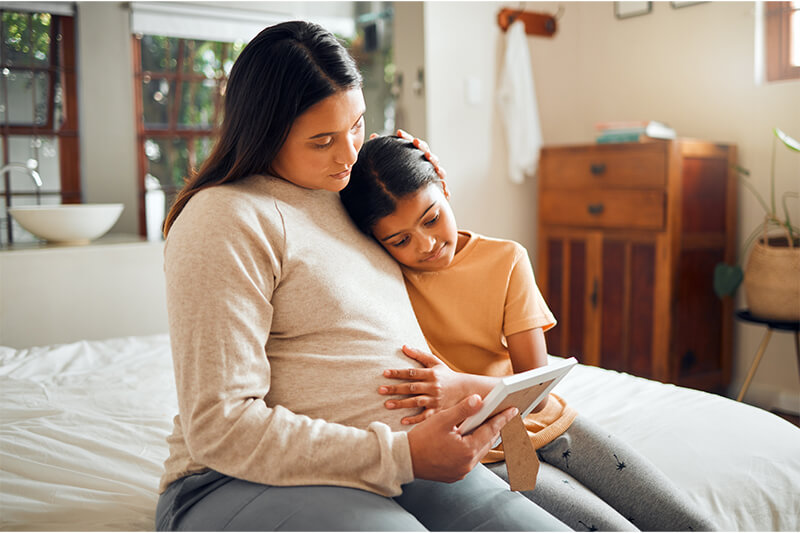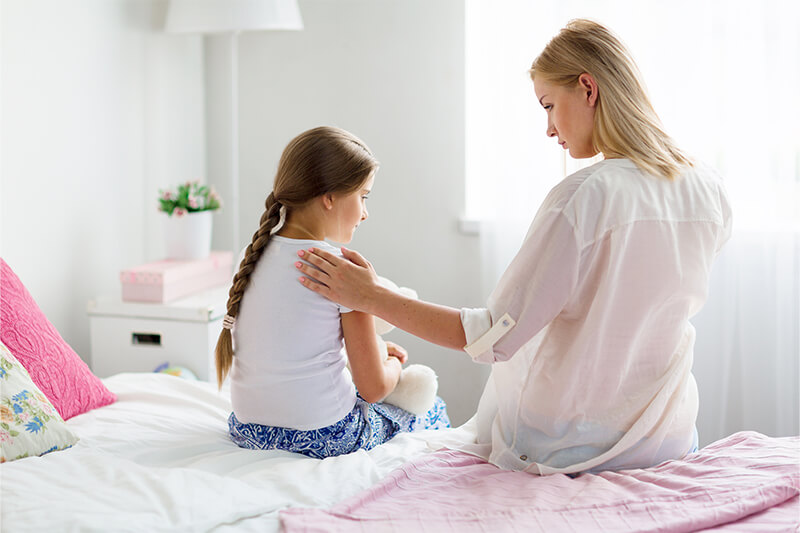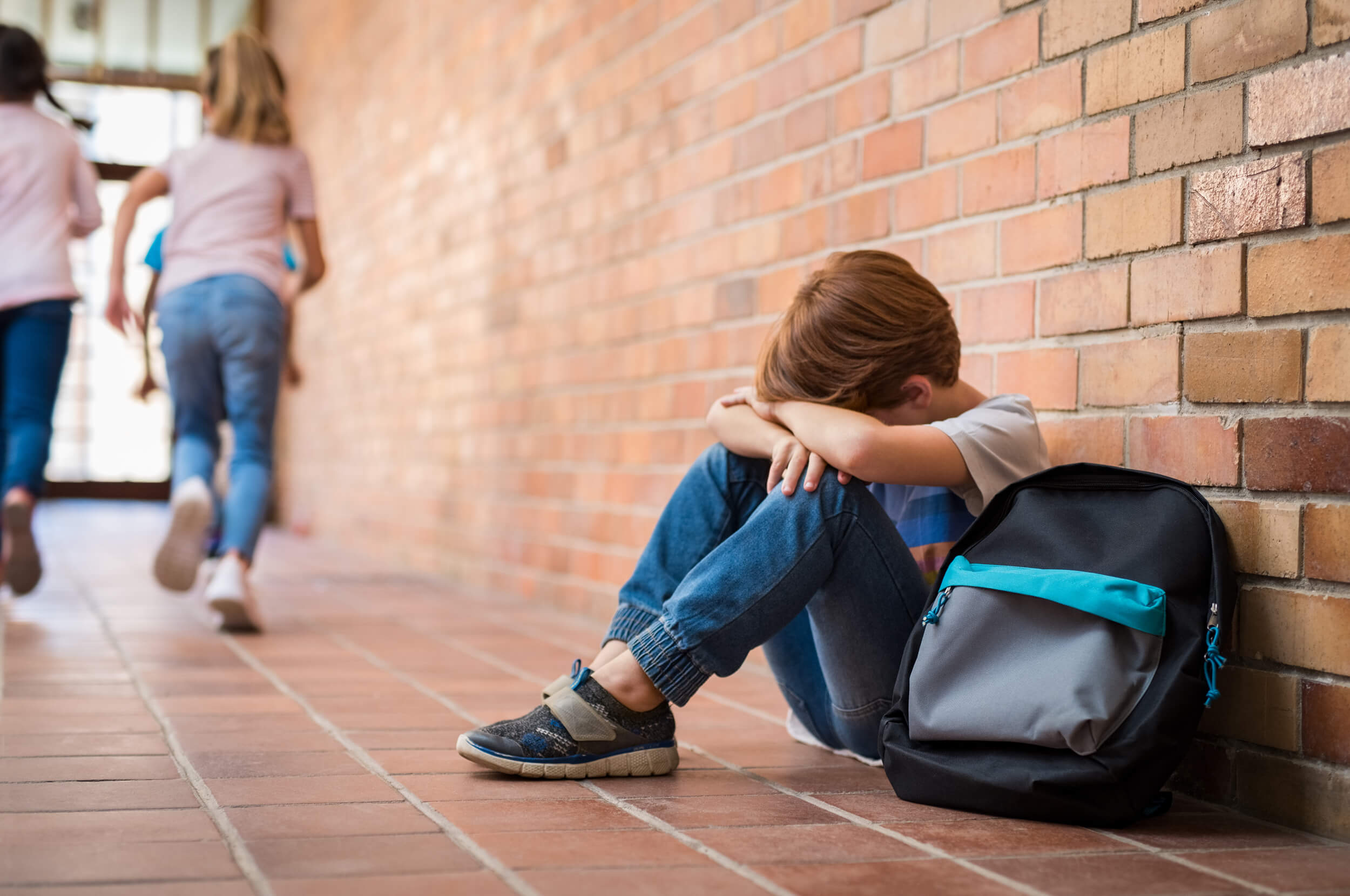How past trauma may inform how we parent and perceive our children
“I didn’t have the best childhood myself…Can I really be a good parent?”
Unfortunately, we don’t get an instruction book on how to parent when our children were born. Instead, many of us use a combination of tips and tricks picked up from friends, family, television, the internet and our own childhoods. In many families, parenting styles and caretaking traditions are passed down from generation to generation. This can help guide young parents by providing information on the basics of keeping children safe and healthy. But what if this information was not taught in your family of origin? How might these ideas about child rearing that were communicated through parents’ actions or words then impact the next generation’s parenting? How often do you hear a friend say “Gosh, I sound like my mother/father”? It appears that we can’t help but pick up a few of the parenting traits of our mother or father whether this be a product more of genetics or experience. This passing on of parenting skills can be an excellent way of learning for those fortunate enough to have parents who were educated on child development and not heavily burdened by the stresses of life. What about those who identify pieces of their childhood that they don’t want to recreate for their own children? Are they able to free themselves from this generational cycle? Often the parts we don’t want to pass on are quite personal and could include traumatic experiences like abuse and neglect.
What is childhood trauma? Have I been through childhood trauma?
Trauma has been defined in many ways. One useful way to think about trauma as a parent is by considering the idea of adverse childhood experiences (ACEs). ACEs are experiences that have the potential to be traumatic and occur before the age of 18. (1) They include things like:
- Physical abuse
- Sexual abuse
- Psychological abuse
- Witnessing domestic violence
- Living with persons who struggle with substance use
- Living with persons who have psychiatric disease
- Living with persons who have been imprisoned

Studies have shown that the number of ACEs a person has experienced has a strong link to risky behaviors and disease in adults. Some of these risky behaviors include smoking, physical inactivity and having many sexual partners. Diseases associated with a high number of ACEs include alcohol use disorder, drug use disorders, depression, sexually transmitted diseases, ischemic heart disease, cancer, chronic lung disease, fractures and liver disease. (2) A more recent study done with families in Philadelphia observed the impact of community-level adversity (witnessing violence, experiencing discrimination, feeling unsafe in their neighborhood, experiencing bullying and living in foster care) and found that people with four or more of this extended list of ACEs have a higher rate of smoking and psychiatric illness. (3)
Although many families do not consider physical punishment such as spanking to be abuse, recent studies have shown that this form of punishment is associated with some negative effects. These include an increased risk of the child acting violently or committing crime in addition to a higher likelihood that the child will experience mental illness, low self esteem and bad grades. (4)
Rather than using ACEs to describe the challenges a person experienced while growing up, some people may relate better to the idea of having experienced household chaos. This is described as a “level of disorganization or environmental confusion in the family home”. Household chaos can include a lack of routines/structure, high levels of stimulation at all times or an overall “fast paced” family life. (5)
I’ve experienced ACEs. Does this mean I won’t be a good parent?
“History is not destiny.” – Fraiberg, Adelson & Shapiro
A study of adults in the U.S. showed that more than 60% of people have experienced at least one ACE. From this same study, about 16% of adults surveyed had experienced four or more ACEs. (6) This means that as a parent reading this article, you’ve likely experienced at least one of the above. Maybe you’re asking yourself: “Do ACEs make me a bad parent?” The answer is no. I have witnessed many patients, friends and family members who experienced childhood adversity go on to become successful parents. Witnessing these families change shows us that this generational cycle can be stopped.
So why does one person who has experienced ACEs go on to be a successful parent when others don’t? It likely has to do with a trait called resilience. Resilience can be described as the ability to recover quickly from challenges. We can help develop resilience in our children and ourselves through building strong, stable relationships, working on self regulation (through exercise, mediation, etc.) and finding sources of meaning in our lives through spirituality and community. (7)
How can I use my new knowledge about trauma to be a better parent?

1. Identify your own physical and emotional responses to your child.
It’s normal to feel angry, annoyed or just plain exhausted when caring for children. One of the simplest ways to prevent these emotions from having a negative impact on your children is to label and voice the emotion. While practicing this, remind yourself that emotions are not good or bad and that all people experience all types of emotions. Try labeling your emotions out loud and in front of your children. This is a form of modeling that will help them learn to self regulate and build resilience!

2. Practice validation (for yourself, your children and other family members).
Validation is the way we use words and body language to show acceptance and understanding of our loved one’s thoughts and feelings. We can validate our children by making eye contact and summary statements. For example, when a child gives up on trying to tie their own shoes they might say “I give up! I’ll never get it!”. Rather than telling the child they will learn eventually and to keep trying, it can be more helpful to label their emotions and show understanding. Here is an example how a parent could respond using validation: “Wow, that looks frustrating! It can be hard to learn new things.” (8)

3. Take care of yourself (respite, therapy, psychiatric care, prioritizing tasks).
Enlist the help of your village so that you can maintain your own physical and emotional health. Children require significant amounts of time and energy to raise. If you add in a child with developmental disabilities, physical impairments or mental illness, it makes that load of physical and emotional labor even more difficult to carry on your own. In this case you may be eligible for respite care through your state. Regardless of whether you are receiving assistance from family, respite care, therapists or other community mem-bers, it’s also important to remind yourself of your priorities. It can be helpful to write these down and hang them on the fridge to share with your children.
References & Sources
- https://www.cdc.gov/violenceprevention/aces/fastfact.html
- https://pubmed.ncbi.nlm.nih.gov/9635069/
- https://www.philadelphiaaces.org/philadelphia-ace-survey
- https://stacks.cdc.gov/view/cdc/104380/cdc_104380_DS1.pdf
- https://bmcpublichealth.biomedcentral.com/articles/10.1186/s12889-020-08587-8
- https://www.cdc.gov/mmwr/volumes/68/wr/mm6844e1.htm?s_cid=mm6844e1_w
- https://developingchild.harvard.edu/science/key-concepts/resilience/
- https://www.ncbi.nlm.nih.gov/pmc/articles/PMC4477266/
By being here, you’re impacting generations.
American Society for the Positive Care of Children is dedicated to preventing child maltreatment and raising awareness of the lifelong impacts of adverse childhood experiences by providing parents with the skills, tools, and educational resources that build their confidence and capacity as caregivers and create more positive childhood experiences. We’re able to continue providing resources like these free of charge to nearly 1,000,000 families who rely on us annually thanks to the generosity of our supporters.
Take action to reduce Adverse Childhood Experiences for the Next Generation Today.
Related Topics

What are Positive Childhood Experiences

Take The PCEs Quiz

Take The ACEs Quiz

What Are ACEs?

